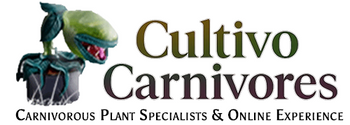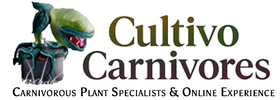Albany Pitcher Plant ‘Thomas Carow’ • Seed grown Rare Australian Cephalotus • Mature Adult
Eish… this one's gone!
Discover what’s still available ⤵️
- At Cultivo, every release is carefully selected and grown with purpose. We don’t mass restock - most plants are small-batch, seasonal or one-of-a-kind “exact plant pictured” pieces. Once they’re sold, they’re truly gone. That’s why you won’t see a typical “email me when available” option on these listings
- Some seasonal items or small-batch variants may return in the future. If that happens, we’ll update the original listing with new photos and details
- 🔔 For updates on new and rare arrivals, keep an eye on our New Arrivals Collection or join our VIP list above.
- 📚 Want to know how stock works at Cultivo? Read "When will … be back in stock?" in our FAQ Library
Cephalotus follicularis ‘Thomas Carow’ • The Aussie Beast with Boxing Glove Traps
One of the most impressive forms of Cephalotus around – with larger-than-average traps and intense colouration, the Thomas clone is a must-have for serious collectors.
Native to a tiny stretch of coastline in Western Australia, Cephalotus follicularis is a compact, slow-growing carnivore that produces two types of leaves: flat, non-carnivorous spring leaves, followed by thick, toothy summer pitchers that look like little boxing gloves. This Thomas Carow clone, originally seed grown and cultivated by horticultural specialist, Christian Klein, in Germany, takes it to the next level – with chunkier traps, intense colouring and a neat, compact growth habit.
What Makes the Thomas Carow Clone So Special?
-
Bigger pitchers: Produces larger-than-average traps compared to standard Cephalotus
-
Brilliant colouration: Pitchers develop deep red tones under strong light, with striped peristomes and bold contrast
-
Compact & consistent: Forms tight rosettes with excellent trap production
-
Terrarium superstar: Performs beautifully in high-humidity setups like terrariums and paludariums with stable conditions
-
Tried and tested: This clone is stable, vigorous and more predictable than many other Cephalotus types
What You’ll Receive
-
The exact plant pictured – a mature specimen with fully developed adult pitchers
-
Carefully shipped in a large plug, with roots wrapped in moist sphagnum for safe transit
-
Grown in South Africa and fully acclimatised to indoor conditions
-
Ideal for bright windowsills, terrariums, or paludariums
Growing Tips for Cephalotus (Thomas Carow)
-
Light: Terrarium or paludarium with full spectrum LED or a bright windowsill (4–6 hours direct sun or supplemental grow light recommended)
-
Water: Top-water only; excellent drainage is crucial
-
Humidity: Moderate to high; ensure airflow to prevent mildew
-
Dormancy: A cool winter rest indoors (15–20°C) is enough
-
Repotting: Only when necessary – avoid disturbing the roots
-
Feeding: No need to feed, but it may catch small prey outdoors
Collector’s Note:
Not for beginners – but absolutely worth the patience. With its bold traps, compact growth, and stunning presentation, the Wilhelma clone will become one of the highlights of your collection.







